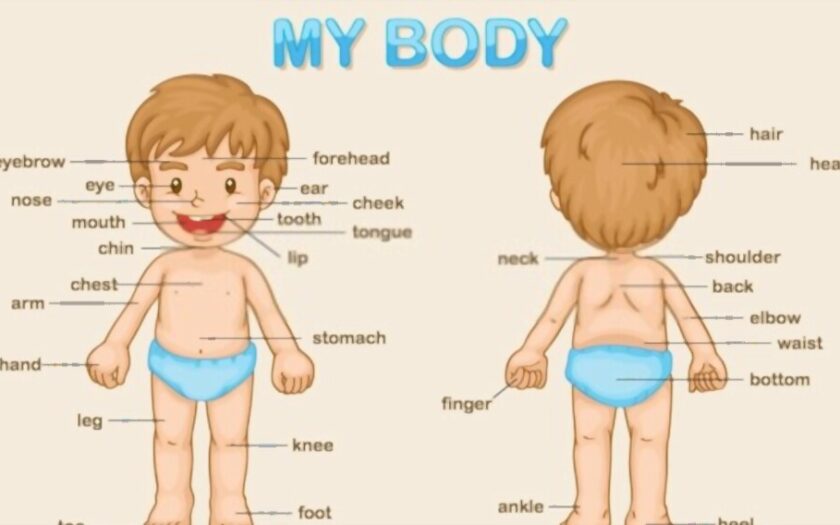So you’ve read all the books, taken the classes, and mentally prepared yourself for the big things: labor, delivery, sleepless nights, and round-the-clock feedings. But there are a few quirks about newborns that no one may have warned you about. Before you pick up the phone to call your pediatrician, here’s the lowdown on some strange, but completely normal, things you might notice about your newborn.
1. Cradle Cap
What’s the deal?
Cradle cap, where your baby’s scalp becomes dry and scaly, can look a bit odd, but it’s very common. The exact cause isn’t well understood, but rest assured, the dryness or flakiness will usually disappear within the first few months. To manage it, try rubbing a bit of mineral oil on the affected areas two or three times a week before your baby’s bath. Use a fine-toothed comb or soft brush to gently remove the scales.
When to worry:
Cradle cap is generally harmless, but if the rash spreads beyond the scalp or seems to worsen, consult your pediatrician.
2. Explosive Poop
What’s the deal?
Every parent has to deal with a diaper blowout or two. Newborn poop is mostly liquid with a mustard-seed texture, so it doesn’t take much for it to, well, explode. While it might be messy, it’s usually nothing to worry about.
When to worry:
As long as the poop has some color (brown, green, yellow) and seedy particles, it’s normal. If you see blood, however, call your pediatrician right away.
3. Baby Boobage
What’s the deal?
Thanks to your hormones, your newborn might have swollen breasts—yes, even boys. This is due to the leftover hormones from pregnancy and usually goes away on its own.
When to worry:
If the area around your baby’s breast becomes red, swollen, or feels warm to the touch, or if your baby has a fever, it could indicate an infection, so contact your pediatrician.
4. Weird Groaning Noises
What’s the deal?
Newborns can make all sorts of noises—grunting, groaning, snorting—thanks to their narrow nasal passages. These sounds are usually just the result of mucus or other blockages in their tiny noses.
When to worry:
If your baby grunts with each breath or shows signs of difficulty breathing, call your pediatrician immediately. Also, seek medical advice if your baby has a fever of 100.4°F or higher.
5. Constant Sneezing
What’s the deal?
Newborns sneeze a lot! They’re adjusting to the world outside the womb, and sneezing is a way to clear out their nasal passages. It could be due to dust, sunlight, or leftover amniotic fluid.
When to worry:
If sneezing is accompanied by wheezing, difficulty breathing, or a fever, it’s time to call the pediatrician to rule out allergies or infections.
6. Random Jerky Movements
What’s the deal?
Your baby’s jerky movements and flailing limbs might seem alarming, but they’re just part of the normal startle reflex (Moro reflex). This reflex usually settles down by 3 or 4 months, and swaddling can help keep your baby calm.
When to worry:
If your baby doesn’t exhibit any startle reflex or jerky movements, speak with your pediatrician, as this could indicate an issue.
7. Oddly-Shaped Heads
What’s the deal?
After squeezing through the birth canal, your baby’s head might appear misshapen. This is normal, and their head will round out over time. If your baby lies on their back too much, they might develop flat spots, but more tummy time and holding your baby can help.
When to worry:
If the flat spots don’t improve, talk to your pediatrician. In some cases, a temporary helmet might be needed to correct the shape of your baby’s head, especially if started between 4 and 6 months.
8. Swollen Genitals
What’s the deal?
If you notice that your baby’s genitals are swollen, don’t panic. Hormones and fluid retention from pregnancy can cause this, and it usually resolves within a few days.
When to worry:
If the swelling persists beyond a few days, especially in boys, check with your pediatrician. Persistent swelling could indicate a condition called hydrocele, which may take up to a year to resolve on its own.
9. Blood in the Diaper
What’s the deal?
Seeing blood in your baby’s diaper can be alarming, but it’s not always a cause for concern. In newborn girls, it could be a “mini-period” due to leftover hormones. Blood can also appear after a rough bowel movement or from a circumcision.
When to worry:
While it’s usually harmless, it’s understandable if you want peace of mind. Call your pediatrician whenever you see blood in your baby’s diaper to ensure everything is okay.
10. Crossed Eyes
What’s the deal?
It’s normal for newborns to have crossed eyes in the beginning as they’re still developing their vision and eye muscle control. Sometimes, what looks like crossed eyes might just be an optical illusion caused by a broad nasal bridge.
When to worry:
If your baby’s eyes are still crossed or wandering by 6 months, schedule a visit with your pediatrician. Persistent crossing could indicate a condition like strabismus or amblyopia (lazy eye).
In the first few weeks of life, your newborn will surprise you with a range of quirky behaviors and appearances. Most of these are completely normal, but don’t hesitate to consult your pediatrician if you have any concerns. Remember, it’s all part of the journey of parenthood!



